Google has largely allowed OEMs to take Android and do with it what they will for smartphones and tablets, but things could be changing in a big way for the rest of the devices now officially supported by Android. According to Ars Technica, Google has confirmed that they will not allow OEMs to make deep changes to Android Wear, Android Auto and Android TV devices.
OEMs will be able to provide a collection of their own pre-installed apps, custom watch faces and other features that don’t require much deep scrubbing of the Android framework, but they won’t be able to get down and dirty and change the core of it. Google’s official reasoning? Here’s the gist of it according to Google engineering director David Burke:
The UI is more part of the product in this case. We want to just have a very consistent user experience, so if you have one TV in one room and another TV in another room and they both say Android TV, we want them to work the same and look the same. The device manufacturers can brand it, and they might have services that they want to include with it, but otherwise it should be the same.
We imagine it’s about a bit more than that. These platforms are all still very new for Google. They might be built on Android (which has matured greatly since its commercial debut in 2008), but we likely aren’t anywhere near maturity for its new home on these new classes of devices. Google’s surely going to have many updates to issue as they continue to refine these new platforms, and they won’t want early users to have to wait forever for them.
That’s just a hunch, though, and there’s no telling if Google is ever going to loosen up on these restrictions. You might be asking yourself why Google would do this if Android is supposed to be open source. Well, their Google Now platform isn’t. Google Play isn’t. Many of their services aren’t.
What’s truly “free” and “open source” is the Android Open Source Project, and OEMs (or even a lone independent developer) are free to use that however they please. But if they want to play in the new sandboxes introduced at Google IO last week they’ll have to accept Google’s new rules. All for the better I’d say.

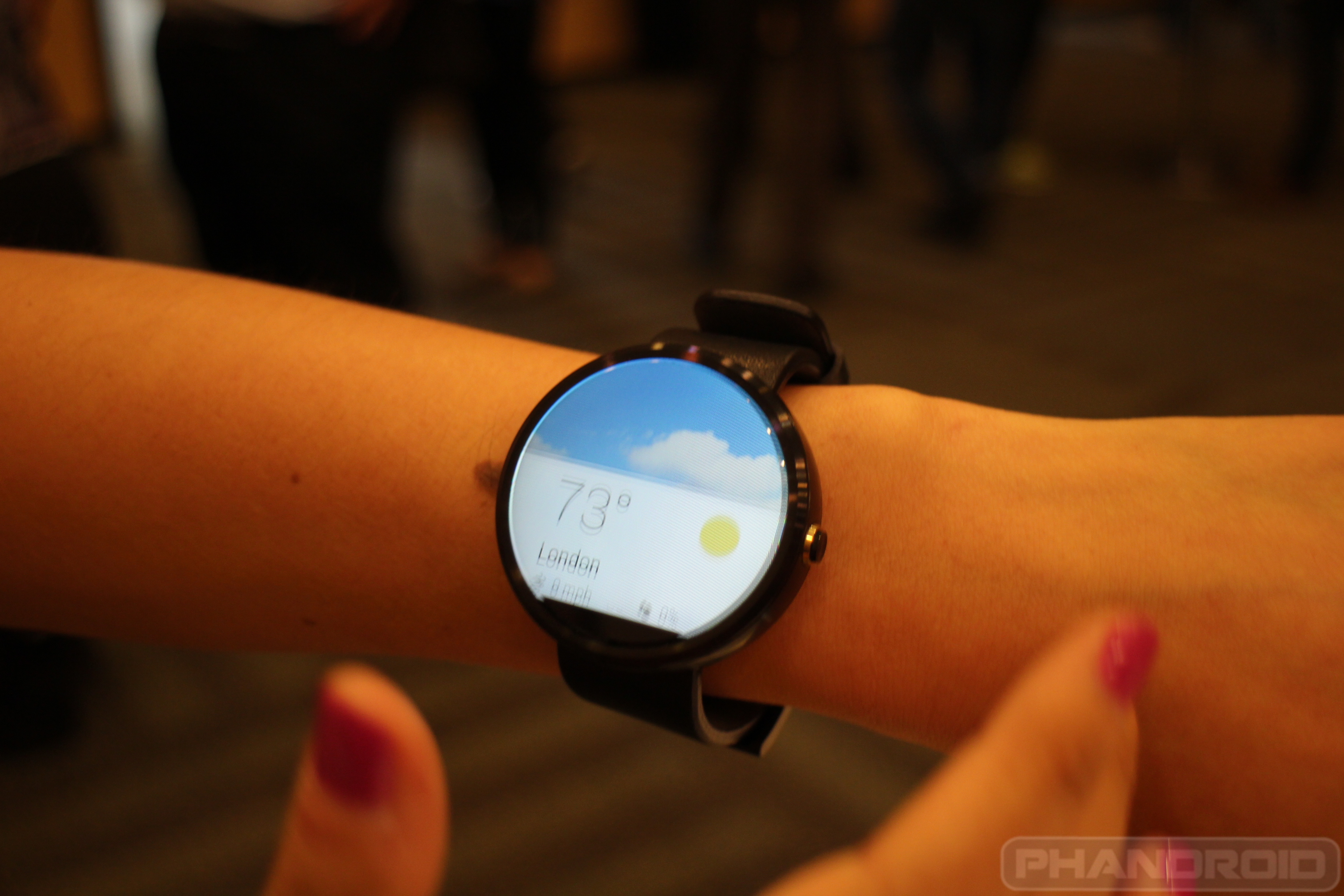
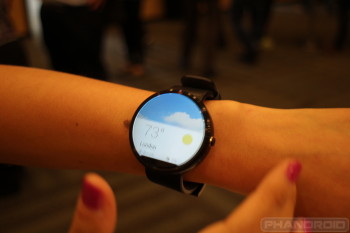
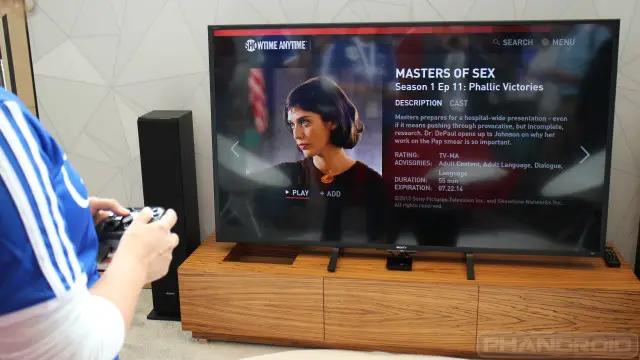
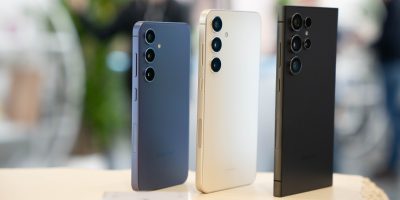

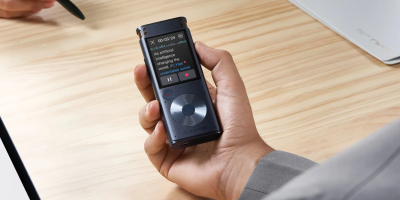






Samsung leave it be! Although I have a note3 am still not into all the wiz. Just spen features.
Totally agree. I love the SPen and use it regularly. I don’t care for all the crap they put on the phone though and would be much happier with a MotoX or N5…
I was like “spen” features? Like rotating the phone”? LoL!! Took me a moment.
This is just amazing news. #polymeryolo
“hey guys, know how the biggest differentiating factor between our system and that of our biggest competitor is that we are completely open and allow you to do whatever you want with our system? Yeah, well, forget all that noise, lock this sucker down!”
Ridiculous
I don’t see a problem with it. Google wants these products to be uniform across the board. Even with this news its still allows for more freedom than IOS. Hell they just got 3rd party keyboard support. If anything this will force OEM’s to focus more on hardware and unique apps to try and gain customers. Samsung’s heart rate monitor, LG’s easy to use magnetic charging cradle, and The 360’s round form factor give consumers choice.
They’re not locking down Android, they’re locking down Android Wear, which is different.
You really don’t understand open source, do you?
Anyone can still take Android and make their own wearable OS or set-top OS. Go for it!
What they can’t do is alter it and then still use Google’s trademarks to market something different.
Or they can add to Android and make their own apps, like developers in the stores already do.
How many calendar apps are there in the store? Why download a calendar app if you already have Google Calendar? Because someone can do it better.
Samsung can have TouchWiz without a single Samsung App. It’s more than just the major OS that developers can do to differentiate themselves.
Just because you can use the code doesn’t mean you should be able to use the name. Because it’s not fair that android gets a bad name when they were the ones who screwed it up.
Amazon also uses and mixes up android. The difference is that Amazon is more honest and calls it Fire OS
Thank God!
Noooooooooooo!
Yes!! One less person I have to worry about buying a product. I’ll buy the last one in the store, and it’ll be because you didn’t get it. =.D
As a loyal fan of my LG Nexus 5, my Asus Nexus 7, and my Samsung Chromebook, I couldn’t be any happier to hear this.
I love Google’s software. If OEMs want to impress me, it’s done by standing out in regards to quality craftsmanship and materials, NOT clunky UI overlays that do nothing except delay software updates.
Have you tried the Moto X? Like Samsung, they offer some amazing features that integrate well with Android. Unlike Samsung, they did it without changing the interface, bloating the phone, or delaying software updates.
I have! It’s beautiful, as well as an example to be followed. I love the feel of the phone, and how zippy and light the user experience is. If I wasn’t on a Nexus handset, I’d rock a Moto X in an instant.
Moto also did a great job optimizing the software. I “downgraded” from an S4 GPE to the Moto X for storage reasons following the SD Card changes. For technical reasons that I won’t get into with this post, the dual-core 1.7ghz on the Moto X is faster than the quad-core 1.9ghz in the S4 GPE is most general usage tasks, despite being the same MPCore and instruction set.
It doesn’t stop them from taking android and making their own.
Yes, it does. OEMs are forbidden from forking Android if they want to maintain ANY compatibility with Android. For example, if Samsung were to actively fork Android, they’d be forbidden from selling any devices with Android + GMS (like the current Galaxy S and Note series phones). Acer/Asus (I get confused) tried helping China with a fork about 2 years ago and got hammered by Google.
They’re not allowed to use Google Services if they fork; they’re not forbidden from forking Android. That’s why the Kindle uses the Amazon app store and not Google Play.
Right. But if they do fork Android, they can’t release GMS-compatible products. That’s Google’s way of banning forking. So if Samsung were to make a forked Android Wear, they can kiss their core Android business goodbye. Ergo, they’re really not allowed to fork.
What does GSM have to do with forking Android?
Nothing. GMS (gee-em-ess), however, which stands for “Google Mobile Services,” does.
Google has the following guidelines. You must pass Android Test Suite compatibility before you can have GMS compatibility. GMS gives you access to the Google Play Store, but also states that certain Google apps/services MUST be pre-installed (Google Play Services, Drive, Hangouts, etc.). There’s also a small fee assessed to the OEM for this (but Android itself is free).
But here’s the catch. Any OEM who forks Android on any devices cannot receive GMS support for ANY device. This is what happened to Acer when they tried to fork Android for a company in China.
http://www.digitaltrends.com/mobile/google-and-alibaba-spar-over-acers-aliyun-phone/
I thought you were talking about the radioband. Or… is that GSM? I think that’s GSM. LoL!!
The other person probably thought the same thing. =.P
Yup, me too…I read GSM, not GMS…. Im tracking now that I read it correctly…
Sorry for any confusion that I caused.
I think it’s overboard that Google restricts access for all devices of the OEM if even one device has a fork; that is really stepping on the open-source balloon and should probably be illegal as an anti-trust issue.
I agree with you 100%. I’m not justifying Google’s actions, simply clarifying them.
I actually happy about Google adding these restrictions because many OEMs like Samsung and Nokia have been removing the standard services or replacing them with their own. Also, this licensing between OEMs and Google requires OEMs to submit any products with Android OS to the Google for verification prior to any product release. If the product meets the licensing terms, then it ships. Otherwise, it does not.
I believe this only pertains to those who are part of the Open Handset Alliance. That’s why Acer ran into trouble attempting to fork Android. Had they not joined the OHA their wouldn’t have been any issue.
No. I’ve made this very easy to understand. I’m done. If people still cannot grasp this simple concept, I’ll let them keep their ignorance. It’s like talking to a wall…
…o…k…. o_O?
internet rage much?
Medion is correct and the OEM licensing isn’t restricted to the members of the OHA. It actually applies to all OEM that use Android OS. For further details, please read the following:
http://arstechnica.com/gadgets/2014/02/new-android-oem-licensing-terms-leak-open-comes-with-restrictions/
Even the most generous person needs to save some for themselves
no it doesn’t…Samsung and LG both managed to make smart watches WITHOUT running afoul of google…so quit with the fud… the kindle is doing quite fine without the play store… Google is just protecting the BRANDING of Android Wear and TV by enforcing a uniform experience…OEMS can still go the route Samsung and lg took before the existence of the wear and TV brands… they just won’t be able to market them as android wear or android TV
Hi Azmon. I apologize if I was unclear, so please allow me to clarify.
As I’ve stated in several posts and backed up with a link, Google has a strict policy on forking Android. Anyone who forks Android is essentially cast out from the OHA (Open Handset Alliance) and forbidden from running a device with GMS (Google Mobile Services). Acer specifically ran afoul of this policy a year or two ago (see the link a few posts down).
Now, you cited some examples. Let me explain to you why those don’t qualify. In order to be cast out of OHA, you have to actually FORK Android. Releasing a competing product doesn’t count.
First, you state that both Samsung and LG have made smart watches. This is correct. However, none of those smart watches runs a forked version of Android. Samsung’s first generation Galaxy Gear ran actual Android (with Touchwiz, but that’s not forking), before receiving a firmware update to Tizen (separate OS, not forked Android). The successor Gear watches run Tizen.
As for LG, I’m not aware of any smartwatch of theirs prior to the G Watch. The G Watch runs pure Android Wear. So, they’re following the guidelines :)
Next, you cite that the Kindle is doing just fine without Google Play. That’s fabulous. That also has nothing to do with what I stated, because Amazon does not attempt to make a GMS compatible device.
Finally, you state that OEMs can still take the route that LG and Samsung took. You’re correct. That’s because neither LG nor Samsung went against Google’s policies. However, should they go against Google’s policies, they will be kicked out of OHA.
Now, after reading that, please let me know if you’re still unclear. If you disagree with anything, please specifically cite what you disagree with.
That was an extremely coherent reply. It’s refreshing to see someone reference each example in a post they disagree with and directly address them.
Thanks for the response. However, I’m now finished with this thread as the responses show me that, while you can lead a horse to water, you cannot make it drink.
I’m treating this thread like a good marriage; I can either be right, or I can be happy. I’ll take the latter :)
I’m totally satisfied with this. I don’t think there is a single person out there who would be fine with a bloated, slow OS running on their watch or an inconsistent, crashing one in their car. Nope, leave it like it is. Sell me a watch based on hardware features. The Moto 360 has won my money based on design. And no one is going to buy a car based on what version of Android is in it. Even if they do want a smart car, that’s just a base for the cars they are going to look at. Everything else about the car, the same features that have influenced our decisions for YEARS, will be why we pick that particular car. There’s absolutely no reason the OEMs should change it. Especially when we’re talking about Car OEMs who would be relatively n00b compared to smartphone OEMs when it comes to Android software and updates.
If updates are quicker I am all for it.
I find this god news. Now this’ll make OEM’s work harder if they want to differentiate.
This is total bs! So the only thing that will be different will be the name brand on the watch? If I was an OEM I’d be pissed! now theyll probably install app bundles to differentiate their brands! And each OEM will have their own branded app for a particular function. This could get messy.
I think you are over-reacting. Think about touchwiz. Everything done in touchwiz could be done simply with apps. There’s no need to customize the OS. Just build the apps that will differentiate.
I’m actually really great with this. They should be able to change the smartphone OS as much as they want – otherwise, no point in having different companies having access to Android – but I really like this decision. I do fully intend on getting Android TV and the fact that it will be basically the same across tehe board will make things easier for me personally. Mostly because I could never settle on a Google TV because they were all so different and I had no idea which to choose.
I just hope they don’t abandon Android TV like they did Google TV.
Im not sold on Android TV… Ive got 1 Sony Google TV and 2 Google TV set top boxes which they more or less abandoned. =(
has HTC shown off their smartwatch yet ?
The only smartwatch worth buying : Withings Activite
http://wpuploads.appadvice.com/wp-content/uploads/2014/06/Withings-Activite-642×481.jpg